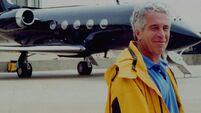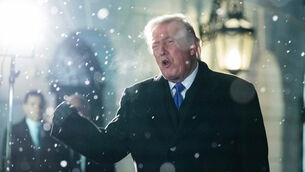Mosque blast sparks Shi'ite fury
The brazen assault which blew the landmark golden dome off the mosque was the third major attack against Shi'ite targets in as many days and threatened to enflame religious passions.
No group claimed responsibility for the early morning attack on the Askariya shrine in Samarra, 60 miles north of Baghdad, but suspicion fell on Sunni extremist groups.














